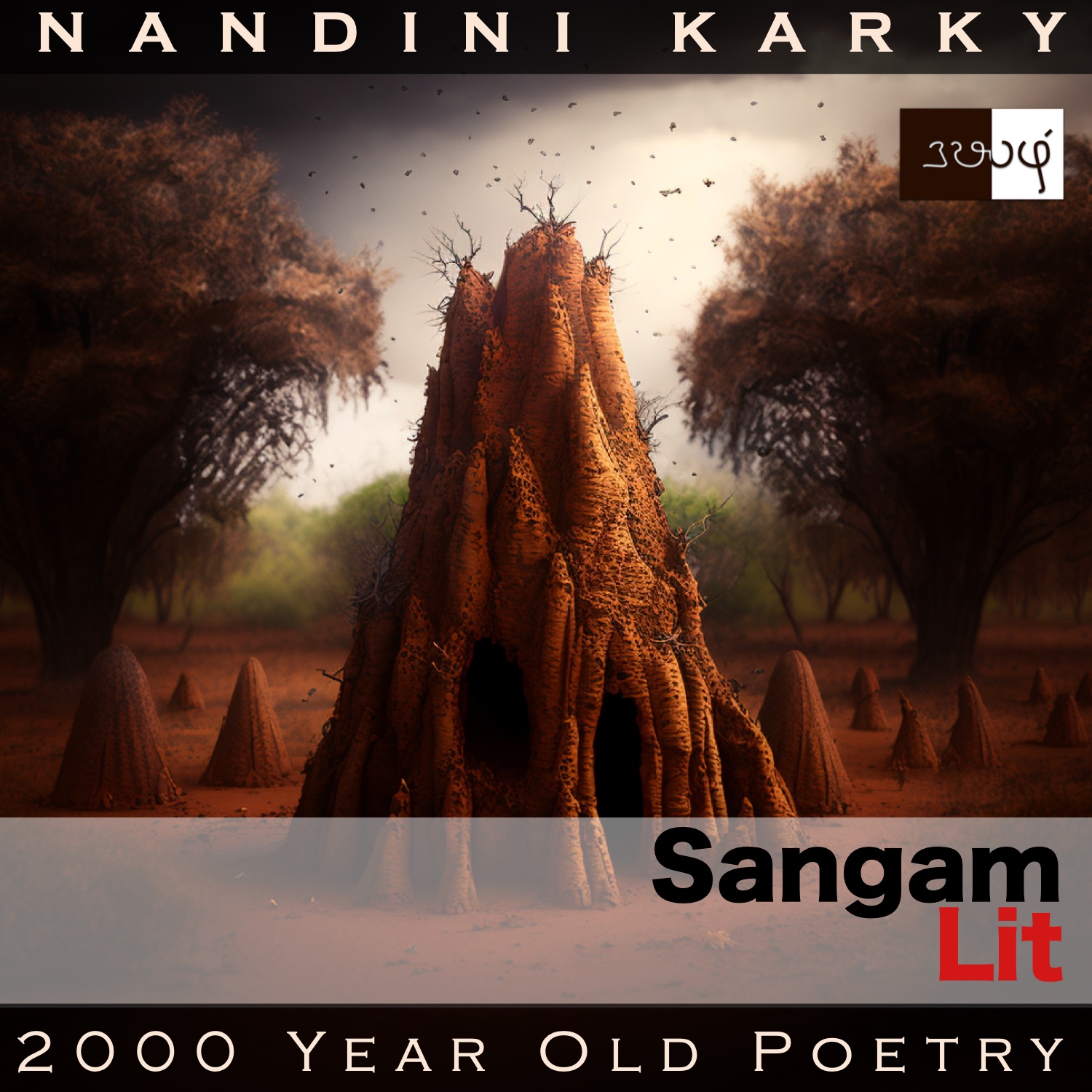Podcast: Play in new window | Download
Subscribe: Apple Podcasts | Spotify | Amazon Music | Android | iHeartRadio | TuneIn | RSS | More
In this episode, we get a glimpse of a fertile land and its foods, as portrayed in Sangam Literary work, Puranaanooru 119, penned about the Velir King Vel Paari by the poet Kabilar. Set in the category of ‘Pothuviyal Thinai’ or ‘Miscellaneous matters’, the verse vividly illustrates the generosity of this king.

கார்ப் பெயல் தலைஇய காண்பு இன் காலை,
களிற்று முக வரியின் தெறுழ் வீ பூப்ப,
செம் புற்று ஈயலின் இன் அளைப் புளித்து;
மென் தினை யாணர்த்து; நந்தும் கொல்லோ
நிழல் இல் நீள் இடைத் தனி மரம் போல,
பணை கெழு வேந்தரை இறந்தும்
இரவலர்க்கு ஈயும் வள்ளியோன் நாடே!
Etched with rich and intricate details is this song in this series on King Paari’s rule. The poet’s words can be translated as follows:
“On a picturesque morning, pleasing to the eyes, a day after monsoon rains have poured, akin to spots on an elephant’s face, jungle vines burst into bloom. At this time, a cooked mixture of tasty termites from red mounds and tamarind, would be gifted along with soft millets. This, the generous king would render unto supplicants, standing like a single tree in a shadeless, long desert path, giving much more than what even rich kings with war drums do. Alas! Such unceasing prosperity is now doomed to end in this land!”
Time to explore the treasures within. The poet starts by bringing before our eyes, a beautiful, rain-soaked monsoon morning, pointing to the lush mountain jungle, where vines are covered with tiny white flowers, appearing like the spots on an elephant’s face. After establishing the setting, the poet turns to talk about some food items, one being, termites from red mounds, cooked and mixed with tamarind, and the other, being rich and soft millets. He has mentioned this seemingly exotic combination of foods to say that’s what King Paari would render to all those, who come seeking his grace, giving unto them much more than even great kings with resounding war drums ever did. To imprint this image of this king, the poet conjures a lonely tree in a wide-spreading drylands region without a drop of shade anywhere else. He concludes with a lament that now that the king’s gone, all that is about to end in that land!
After empathising with the emotions of this lamenting poet, let’s turn our attention to the foods he describes. Termites – What an odd thing to be considered a delicacy and celebrated so, you may think! But there is a rich wealth of researched evidence that termites is a preferred food in many countries of Sub-Saharan Africa, considered to be the origin of the human race. In a scientific book on ‘Sustainability in Plant and Crop Protection’, there’s an interesting link with this song in the description of how these termites are collected only in the rainy season, the very thought poet Kabilar begins this verse with. In this scientific book, it’s also mentioned that these termites are known to be a rich source of protein, fats and key vitamins, and are described as one of the most environmentally-friendly and sustainable foods for humans. Something that our ancestors seemed to have known instinctively!
Not only in the continent of Africa, even closer home in the Indian subcontinent, indigenous tribals and people in rural areas even today enjoy eating termites. A blog article mentions this food item being referred to as ‘Usillu’ in Telangana and narrates the fond memories of how it was lovingly prepared by the writer’s grandfather. Also, in my search, I found this heartwarming Youtube video, from the ‘Village Cooking Channel’, telling the story of how these termites, known as ‘eesal’, the contemporary Tamil name for these winged insects, are caught and cooked by villagers in Tamilnadu, who sit down after a hard day’s work to enjoy this nutritious delicacy, the same food which poet Kabilar employs to praise the generosity of a king, who lived more than two thousand years ago. And yet again, I’m stunned by how I begin my journey in an ancient verse, and then, find the wings to fly far and near, and the eyes to see the oneness of the human spirit!




Share your thoughts...